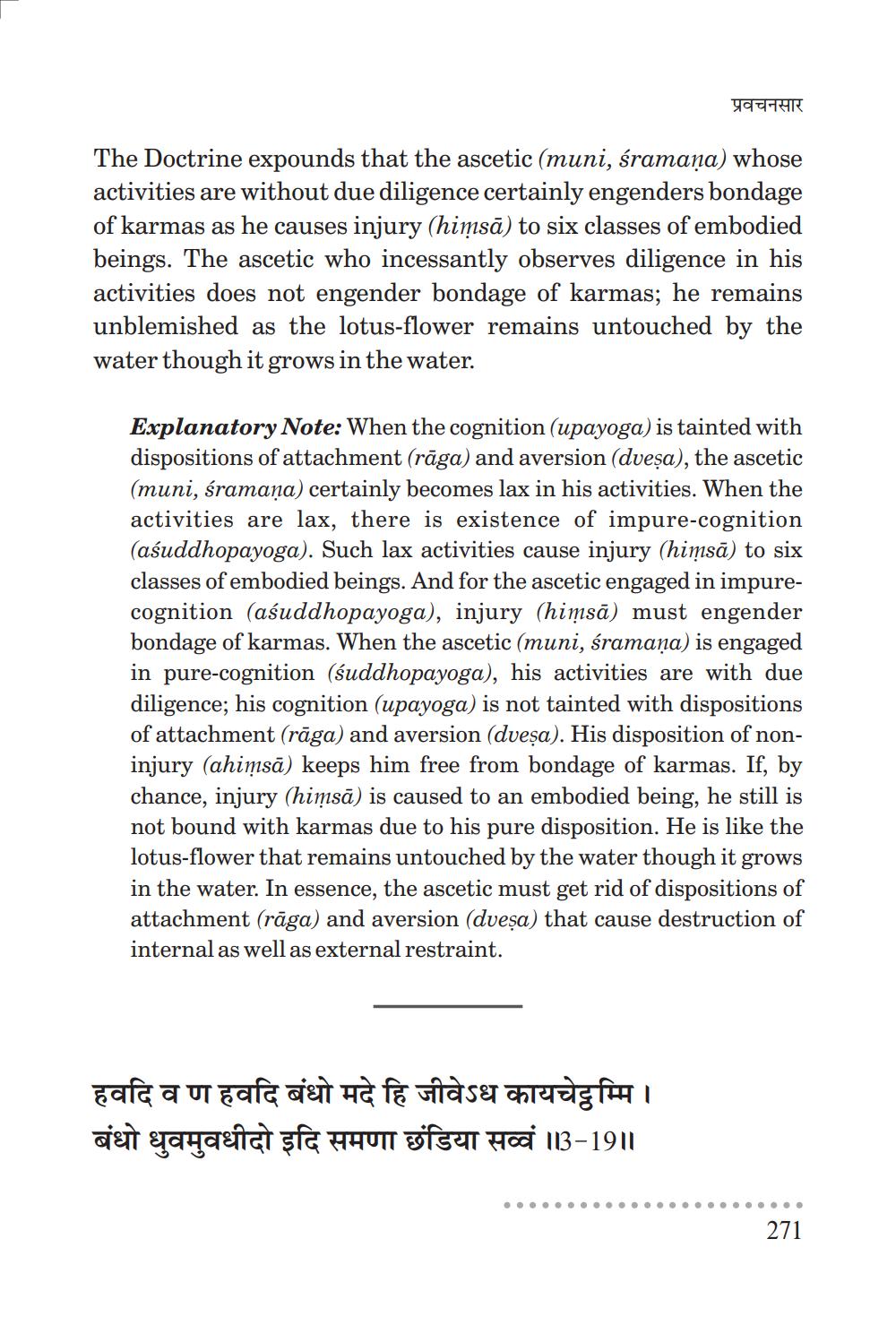________________
प्रवचनसार
The Doctrine expounds that the ascetic (muni, śramaņa) whose activities are without due diligence certainly engenders bondage of karmas as he causes injury (hiņsā) to six classes of embodied beings. The ascetic who incessantly observes diligence in his activities does not engender bondage of karmas; he remains unblemished as the lotus-flower remains untouched by the water though it grows in the water.
Explanatory Note: When the cognition (upayoga) is tainted with dispositions of attachment (rāga) and aversion (dveșa), the ascetic (muni, śramaņa) certainly becomes lax in his activities. When the activities are lax, there is existence of impure-cognition (aśuddhopayoga). Such lax activities cause injury (himsā) to six classes of embodied beings. And for the ascetic engaged in impurecognition (aśuddhopayoga), injury (himsā) must engender bondage of karmas. When the ascetic (muni, śramaņa) is engaged in pure-cognition (śuddhopayoga), his activities are with due diligence; his cognition (upayoga) is not tainted with dispositions of attachment (rāga) and aversion (dveşa). His disposition of noninjury (ahimsā) keeps him free from bondage of karmas. If, by chance, injury (hiņsā) is caused to an embodied being, he still is not bound with karmas due to his pure disposition. He is like the lotus-flower that remains untouched by the water though it grows in the water. In essence, the ascetic must get rid of dispositions of attachment (rāga) and aversion (dveşa) that cause destruction of internal as well as external restraint.
हवदि व ण हवदि बंधो मदे हि जीवेऽध कायचे?म्मि । dan gaudeitti sf& Huum ofset Hooi 113–1911
........................
271




